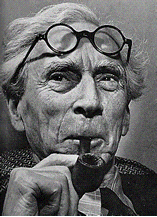Philosophy 111: Contemporary Work in Metaphysics and Epistemology
Winter 2003
TuTh 9:30-10:50
Warren Lecture Hall 2209
Instructor: Jonathan
Cohen (joncohenREMOVETHIS@aardvark.ucsd.edu (omit text in caps, which reduces automated spam))
office: (858) 534 6812
Office hours: Tuesday, 1:30 to 3:00, in H&SS 7066.
Overview
This course is an introduction to contemporary work in epistemology
-- roughly, the theory of knowledge -- and metaphysics -- roughly, the
theory of what there is in the world.
As such, the course will be devoted to fundamental questions about
the world and our knowledge of it. What is matter? How is a priori
knowledge possible? What does it mean for evidence to confirm a
theory? In addressing these topics, we'll also discuss classic
paradoxes involving truth, vagueness, space-time, and contradiction.
Course Requirements
Those taking the class for credit are expected to hand in three short
(5-7) page papers. I shall hand out a list of topics for the papers
before each is due. Grades will be determined on the basis of the
three papers, and I'll use class participation as a way of deciding
borderline cases.
Note that the third paper will count as your final exam: it
will be due during exam week, so you'll have plenty of time after the
end of official course instruction to complete it.
There will be no midterm for the course.
Required Texts
There are two required books for the course: Russell's Problems of
Philosophy, and Sainsbury's Paradoxes (second edition).
I'm told these books are available in the UCSD bookstore.
We'll also be reading some shorter pieces that I will hand out in
class.
 Related Materials
Related Materials
Advice
Writing philosophy is difficult, and doing it well takes time and
practice.
As this is an upper level philosophy course, I assume you've had some
practice already; however, you may find it useful to consult some of
these tips on
philosophical writing.
Obviously, these materials are not designed for our writing
assignments in particular, but the advice they give is generally sound
and applicable.
I can't emphasize enough the importance of starting your writing
early.
The process of writing -- even if only starting with a half-baked idea --
will help you crystalize your thoughts and get clear on what you do
and don't understand.
That, in turn, will tell you what you need to do next to refine your
ideas.
Also, starting early allows you the (necessary) luxury of setting out,
reconsidering, revising, and developing lines of thought.
And if there's something in the course that you don't understand,
come see me about it.
Getting the issue cleared up sooner rather than later means that it
won't create other problems for you, and will allow you more time to
enjoy the warm glow of understanding.
This is why God invented office hours.
You've paid your tuition, so don't let material go over your head;
come and get the education you deserve!
 Related Materials
Related Materials Related Materials
Related Materials